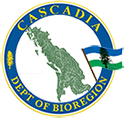GAMES OF THE FIRST NATIONS: SLAHAL Slahal or Lahal (with slight spelling and pronunciation variations including Sla-hal, Slhahal, Lahall, and Lahalle), is a gambling game of the indigenous peoples of Cascadia, especially along the Salish Sea, which combines song, sacred ritual, intense competition and guesswork. Known by titles such as…...
Your Chinook Wawa Word of the Day: Kull
KULL [kul] — adjective. Meaning: Hard (in substance); solid; hard to do; tough; difficult. Origin: From a Chinookan particle q’ul ‘strong’; q’ul-q’ul ‘strong’, ‘hard’, ‘too difficult’. A word used to describe making something “hyas kull” (tight; fast), or changing the state of something such as “mamook kull” (to harden;…...
2021 U.S. Census Redistricting: Exploring Watershed Based Voting Districts
Every 10 years, the United States completely erases current voting district borders, and creates new ones using census data that has tracked demographic changes over the past ten years.How these districts are drawn is incredibly important, and in many states, is used as a tool of disenfranchisement, racism, and reinforcing…...
Your Chinook Wawa Word of the Day: Lemooto
LEMOOTO [le-MOO’-to] or [lam’-MU-to] — noun. Meaning: Sheep; mutton. Origin: French, les moutons, “sheep” Sometimes spelled as lemoto or limoto, it refers to sheep, and naturally all things related to them, such as “man lemooto” (ram), “klootchman lemooto” (ewe), “tenas lemooto” (lamb), and “lemooto house” (fold, sheepfold). The word was…...
The Sound of the Yurok language (Numbers, Sentences & Phrases)
Yurok (also Chillula, Mita, Pekwan, Rikwa, Sugon, Weitspek, and Weitspekan) is an Algic language. It is the traditional language of the Yurok of Del Norte County and Humboldt County on the northwest coast of California. The name Yurok comes from the Karuk ‘yuruk’, literally meaning ‘downriver’. The Yurok traditional name…...
The Sound of the Salish Language (Numbers, Greetings, Phrases & Story)
The Salish or Séliš language, also known as Kalispel–Pend d’oreille, Kalispel–Spokane–Flathead, or, to distinguish it from the Salish language family to which it gave its name, Montana Salish, is a Salishan language with dialects spoken (as of 2005) by about 64 elders of the Flathead Nation in north central Montana…...
The Sound of the Tlingit language (Numbers, Greetings, Phrases & Story)
The Tlingit language is spoken by the Tlingit people in Southeast Alaska from Yakutat (Yaakwdáat, Yàkwdât) south to Portland Canal, and from British Columbia into south-central Yukon Territory between Tagish and Kaska northward. The Tlingit language is distantly related to Eyak and the Athabaskan languages as a branch of the…...
The Sound of the Nootka / Nuu-chah-nulth language (Numbers, Sentences, Phrases & Story)
Nuu-chah-nulth, also known as Nootka, is Wakashan language historically spoken on the west coast of Vancouver Island, from Barkley Sound to Quatsino Sound in British Columbia by the Nuu-chah-nulth peoples. Nuu-chah-nulth is a Southern Wakashan language related to Nitinaht and Makah. It is the first language of the indigenous peoples…...
The Sound of the Haida language (Numbers, Greetings, Sentences & Phrases)
Haida (X̱aat Kíl, X̱aadas Kíl, X̱aayda Kil, Xaad kil) is the language of the Haida people, spoken in the Haida Gwaii archipelago off the coast of British Columbia and on Prince of Wales Island in Alaska. An endangered language, Haida currently has 24 native speakers, though revitalization efforts are underway.…...






